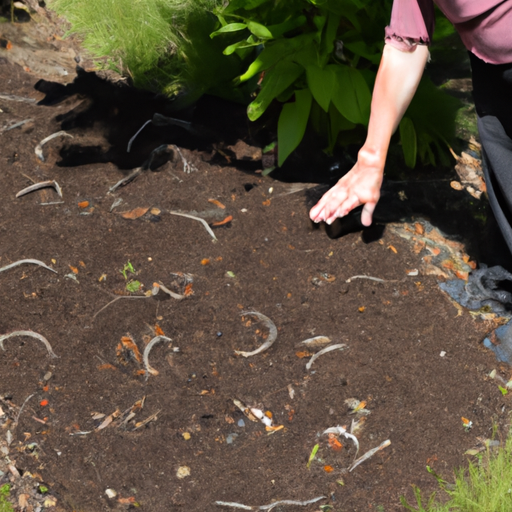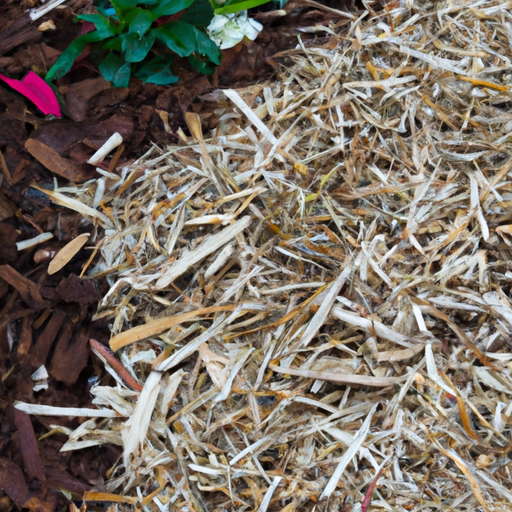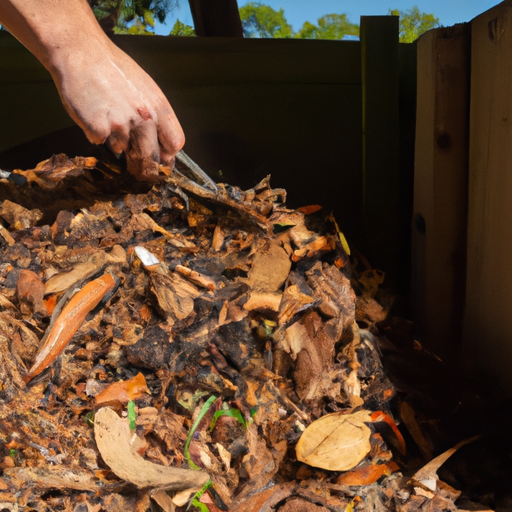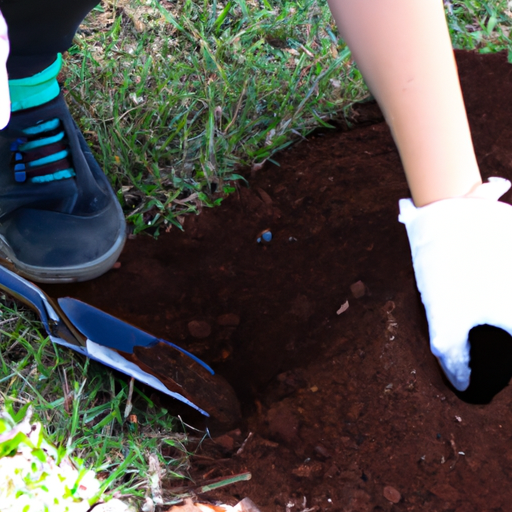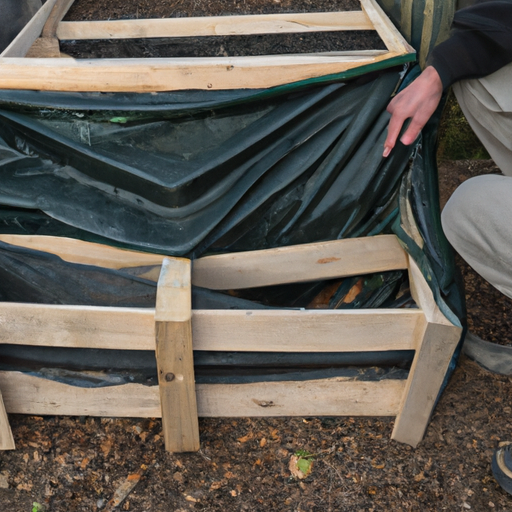Hey there fellow gardeners! If you’re looking to improve the health of your soil and grow healthier plants, then this article on building healthy soil with organic amendments is just for you.
As a Master Gardener, I’ve seen firsthand how important it is to focus on improving soil quality in order to achieve great gardening results.
Using organic amendments can be an effective way to build up your soil’s natural fertility and promote better plant growth. These materials can come from a variety of sources such as compost, manure, leaves, or other organic matter that can be added directly into the soil.
By incorporating these amendments into your garden beds over time, you’ll gradually enhance the texture, structure and overall health of your soil – leading to stronger roots, more abundant yields and improved disease resistance for your plants.
So let’s dig in and explore some practical tips for using organic amendments effectively in your own garden space!
Understanding Soil Composition
Like the varied hues of a rainbow, soil has its own distinctive texture and composition that affects the growth of plants. Soil can be sandy or loamy, heavy or light, acidic or alkaline – all factors that directly impact nutrient availability for our beloved vegetation.
Understanding soil texture is key to figuring out how much water it will retain and how easily roots can penetrate through it. Additionally, knowing your soil type helps you determine which organic amendments will best improve its structure and fertility.
Nutrient availability depends on many other variables as well: pH levels, beneficial microorganisms, and certain minerals present in the soil. By delving deeper into the intricacies of soil composition, we’ll gain valuable insight into what makes healthy soil so essential for successful gardening endeavors.
Benefits Of Using Organic Amendments
Using organic amendments in your soil can have numerous benefits for both your garden and the environment.
Not only does it improve soil structure, but it also enhances nutrient availability and increases water retention capacity.
Organic amendments provide a slow-release of nutrients that help sustain healthy plant growth over time.
Additionally, using organic amendments reduces the need for synthetic fertilizers, which can have negative impacts on the environment by contributing to pollution and runoff into nearby bodies of water.
It is also cost-effective as these materials are often readily available from local sources such as composting facilities or agricultural waste sites.
Therefore, incorporating organic amendments into your gardening practices not only promotes healthy plants but also has a positive impact on the environment while being cost-effective.
Choosing The Right Organic Amendments
When it comes to building healthy soil with organic amendments, choosing the right ones is crucial.
Composting techniques can provide an excellent source of organic matter that can improve your soil’s structure and water-holding capacity. However, not all composts are created equal, so be sure to choose one that matches the nutrient needs of your plants.
Nutrient availability is another key consideration when selecting organic amendments. For instance, if you want to boost nitrogen levels in your soil, consider adding manure or blood meal. On the other hand, if you need to increase phosphorus levels, bone meal may be a better choice.
By carefully selecting the right organic amendments for your garden, you can build healthier soil that supports vigorous plant growth and yields abundant harvests without relying on synthetic fertilizers.
Applying Organic Amendments To Your Garden
Oh, you think gardening is just about sticking some plants in the ground and hoping for the best? Think again. Building healthy soil with organic amendments is a science, my friends. And when it comes to applying those amendments to your garden, there are a few things you need to keep in mind.
Firstly, let’s talk composting techniques. Composting is a great way to create nutrient-rich organic matter that can be used as an amendment in your garden. You can either purchase pre-made compost or make your own by collecting kitchen scraps and yard waste in a bin or pile and allowing them to decompose over time.
Next up: recommended application rates. The amount of organic amendments you’ll need will depend on several factors such as the size of your garden and the type of plants you’re growing. As a general rule of thumb, aim for 1-2 inches of compost or other organic material per year.
But don’t go overboard! Too much of a good thing (in this case, organic matter) can actually harm your plants by creating an imbalance in nutrients or blocking air and water from reaching the roots.
And finally, remember that building healthy soil takes time and patience. Don’t expect overnight results – but do expect healthier plants, better yields, and more delicious veggies than ever before.
Happy gardening!
Monitoring And Maintaining Soil Health
As a Master Gardener, it’s important to not only build healthy soil with organic amendments but also monitor and maintain its health.
This can be achieved through regular soil testing to determine nutrient deficiencies or excesses. Soil testing allows for proper nutrient management which is crucial in maintaining the balance of essential nutrients needed by plants for optimal growth.
In addition to soil testing, monitoring soil moisture levels is also important as too much water can lead to root rot while too little water can cause stress on plants.
Regularly observing plant growth and appearance can provide insight into potential problems such as pests or diseases that need timely intervention.
By consistently implementing these practices, gardeners can ensure long-term success in their efforts towards building and sustaining healthy soils.
Frequently Asked Questions
How Do I Test My Soil For Nutrient Deficiencies?
Before we delve into the best soil testing techniques and nutrient analysis methods, let’s paint a picture. Imagine your garden is like a blank canvas waiting to be brought to life with vibrant colors and lush foliage. But in order for those plants to thrive, you need to know what nutrients they require from the soil.
This is where soil testing comes in handy! As a Master Gardener, I highly recommend getting your soil tested regularly so that you can determine any deficiencies and make necessary adjustments. There are several techniques available for soil testing such as mail-in kits or hiring a professional service.
Additionally, there are various nutrient analysis methods that can provide even more detailed information on the state of your soil. With this knowledge in hand, you’ll have everything you need to create healthy and thriving plant life in your garden.
Can I Use Inorganic Fertilizers In Conjunction With Organic Amendments?
Yes, you can use inorganic fertilizers alongside organic amendments.
However, it’s important to understand the benefits of organic amendments and drawbacks of inorganic fertilizers before deciding on your approach.
Organic amendments like compost, manure, and cover crops improve soil structure and increase microbial activity which helps plants absorb nutrients more efficiently.
In contrast, while inorganic fertilizers provide a quick nutrient boost to plants, they can also harm beneficial microbes in the soil over time and contribute to water pollution.
By using both approaches together, you can get the best of both worlds – improving soil health with organic amendments while supplementing plant nutrient needs with targeted application of inorganic fertilizers as needed.
What Is The Best Time Of Year To Apply Organic Amendments?
When it comes to adding organic amendments to your soil, timing is everything.
The best time of year for applying these amendments largely depends on whether you’re looking to give your plants a boost in the spring or preparing them for winter in the fall.
For spring applications, aim to add organic matter after the last frost date and before planting season begins.
Fall applications should be done a few weeks before the first expected frost in order to allow plenty of time for decomposition before the cold weather sets in.
It’s also important to choose the right type of amendment based on your specific soil needs – do you need more nitrogen? Phosphorus? Calcium?
Do some research and consult with a professional if needed to determine which option will work best for you.
How Often Should I Apply Organic Amendments To My Garden?
To ensure optimal plant growth and nutrient retention, it is recommended to apply organic amendments to your garden on a regular basis. Frequency recommendations vary depending on the type of amendment used and the specific needs of your soil.
As a Master Gardener, I suggest conducting a soil test to determine what nutrients are lacking and how often you should amend accordingly.
In general, applying compost or well-aged manure once or twice a year can greatly improve soil health and fertility. However, if your soil is in need of more significant improvements, such as balancing pH levels or increasing micronutrient availability, you may want to consider additional applications throughout the growing season.
Remember, healthy soil equals healthy plants!
Can I Use Compost Made From Animal Waste In My Vegetable Garden?
Yeehaw! Using animal waste in compost is a rootin’ tootin’ good idea for your veggie garden. Composting methods can vary, but adding manure from cows, horses, chickens, or even rabbits can provide many benefits.
Animal waste adds essential nutrients like nitrogen and phosphorus to the soil, improving its overall health and fertility. Plus, it’s a sustainable way to recycle organic matter that would otherwise go to waste.
Just make sure you properly compost the manure before using it in your garden to avoid any harmful pathogens. Happy gardening y’all!
Conclusion
As a Master Gardener, I can confidently say that building healthy soil with organic amendments is the key to successful gardening. But don’t just take my word for it – test your soil for nutrient deficiencies and see for yourself!
Once you know what your soil needs, choose the right combination of organic amendments and inorganic fertilizers to give your plants the boost they need. And let’s not forget timing – applying organic amendments at the right time of year can make all the difference.
So go ahead and indulge in some composting or mulching, but be sure to do it strategically. And remember, as a gardener, you have the power to transform even the most barren of soils into thriving ecosystems. With dedication and care, you’ll soon see your garden flourish beyond your wildest dreams!
